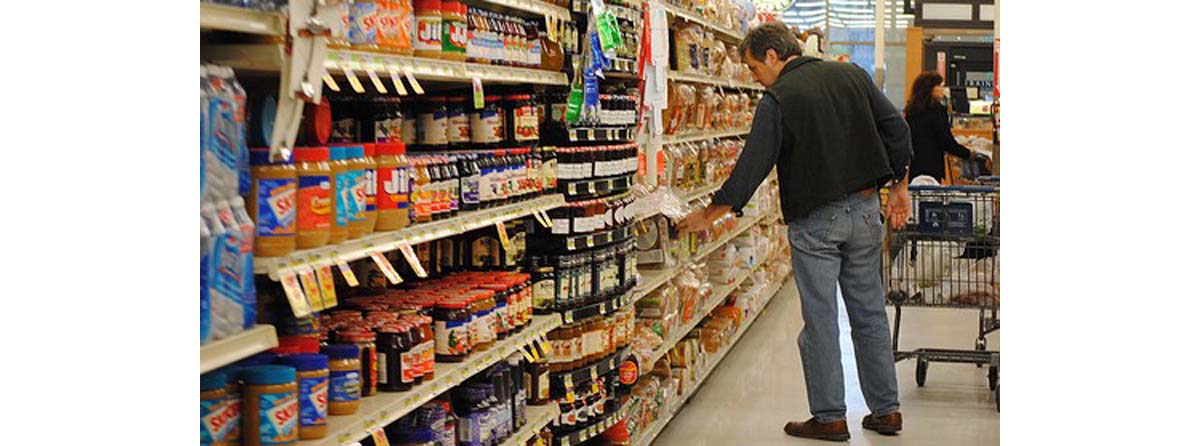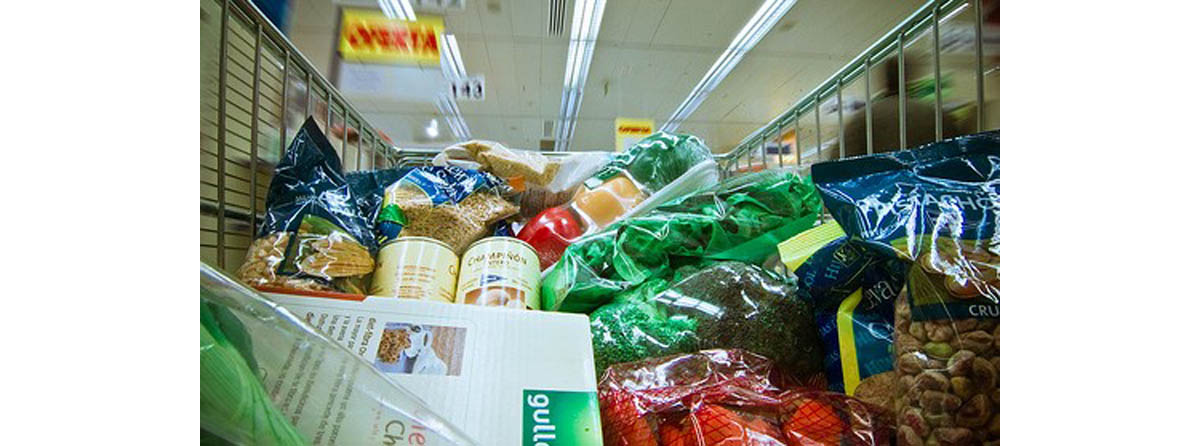For just $50 a year (or maybe $35 a year if you have been a member for 10 years or more), if you live in the USA, you can become an "exclusive" member of a warehouse club store like Sam's, Costco, Pace, or BJ's. If you live in Canada, you might join one of the American discount clubs or maybe the Real Canadian Discount Club. In Australia, it's Costco Wholesale and its competitors, and even in the UK and the rest of the European Union, and in unlikely places such as India, China, and Japan, "big box" warehouse stores that offer great buys on large amounts of food are becoming commonplace.

And obesity is becoming commonplace in all those countries, too. If you're like me, the main problem at the warehouse club is the tendency to overspend, as in "I don't know what this is, but I think I'll buy four of them." And when you carry those 5-pound (or even 5-kilo) boxes of crackers and those $200 boxes of frozen shrimp home, well, you do have to eat them all for the purchase to have been a bargain, don't you?
Buying too much food is the first curse of the warehouse store. But that isn't the only problem with shopping for bulk food items on the cheap.
- When we buy huge containers of food, we tend to eat too much of them for about a week, and then to put the container someplace where we won't notice it. Then we hide the box of cookies somewhere in the cabinet where we won't notice it or we shove the crate of frozen food to the back or the bottom of the freezer. Buying 50 pounds of frozen shrimp at $3 a pound doesn't do you a lot of good if six months from now you wind up throwing 30 pounds away.
- Multiple packages of food--a giant shrink wrapped container of 48 smaller packages of potato chips, for example--tend to cause clutter. You see them everywhere. You can't open the cupboard without a snack pack falling out. As a result, you wind up eating snacks much more often than you usually would because they are so convenient to eat.
- Stockpiled foods tend to go fast, for about a week. But by the end of about a week, we burn out on stockpiled noodle bowls, microwave popcorn, candy, crackers, or fruit bars, and then get so sick of them we let the rest of the purchase go stale.
How to Get a Diet-Friendly Good Deal at Your Discount Store
So how can you take advantage of great prices at one of the big box wholesale stores without either packing on the pounds of belly fat or throwing out the food you don't use. Here are some basic principles of portion size that can help you avoid overeating without wasting bargain food.

When packages are smaller, we pour out less.
Repackage jumbo-sized packages of food into smaller plastic bags and Tupperware containers. The product will stay fresher, and you'll eat less.
Food that is out of sight is usually also out of mind.
Make a habit of hiding extra food. if you buy 144 boxes of Pop Tarts, put about 142 of them in a place in your kitchen cabinets where you won't see them every day. But be sure they are in a place you'll see them at least every few weeks so you don't buy another forklift-full of the same product the next time you go to the warehouse store.
The harder a package is to reseal, the less you will eat.
Mindless eating is usually convenience eating. If, for instance, you reseal a big bag of chips with tape instead of whith an alligator clip, you will be less likely to eat on impulse. You'll be just a little hungrier before you reach for the snack. As portion control expert Dr. Brian Wanskin puts it, make overeating a hassle, not a habit.
We eat smaller portions of "inconvenience" foods.
Make a habit of eating only at the dining table. Scarfing down snacks while watching TV or playing video games makes it too easy to overeat. Put especially tempting leftovers that you know you will eventually eat in inconvenient containers, resealing packages or wrapping leftoevers in aluminum foil and putting them at the back of the cupboard, the refrigerator, or the freezer.
What you don't buy, you won't eat.
Or even better, just don't buy huge amounts of food at the warehouse store. Go to Costco's, Sam's, BJ's, or the other discount food store with a shopping list, foods you know you want to have on hand for your family that you want to buy at the lowest possible price. Limit yourself to just one or two items that are not on the list you take with to the store.
And always share the goodies. You'll eat less, particularly when you pace yourself to be the slowest eater in the group, and you make a point of being the last person to start eating and the first person to finish. Make a resolution not to go for seconds, and decided how much you are going to eat before you start eating.
Discount clubs can be a great way to save on food costs, or an insidious way to increase food costs at the same time you are gaining weight. Taking charge of your food before your food takes charge of you is the way to save money and save pounds at the same time.
- Chandon P, Wansink B. When Are Stockpiled Products Consumed Faster? A Convenience Salience Frameworkof Post-Purchase Consumption Incidence and Quantity. Journal of Marketing Research 39:3 (August 2002): 321-35.
- Wanskin B, Brasel SA, Amjad S. The Mystery of the Cabinet Castaway: Why We Buy Products We Never Use. Jounral of Family and Consumer Science 92:1 (2001): 104-8.
- Photo courtesy of Anthony Albright by Flickr : www.flickr.com/photos/anthonyalbright/4713745704/
- Photo courtesy of kozumel by Flickr : www.flickr.com/photos/kozumel/2259224024/

